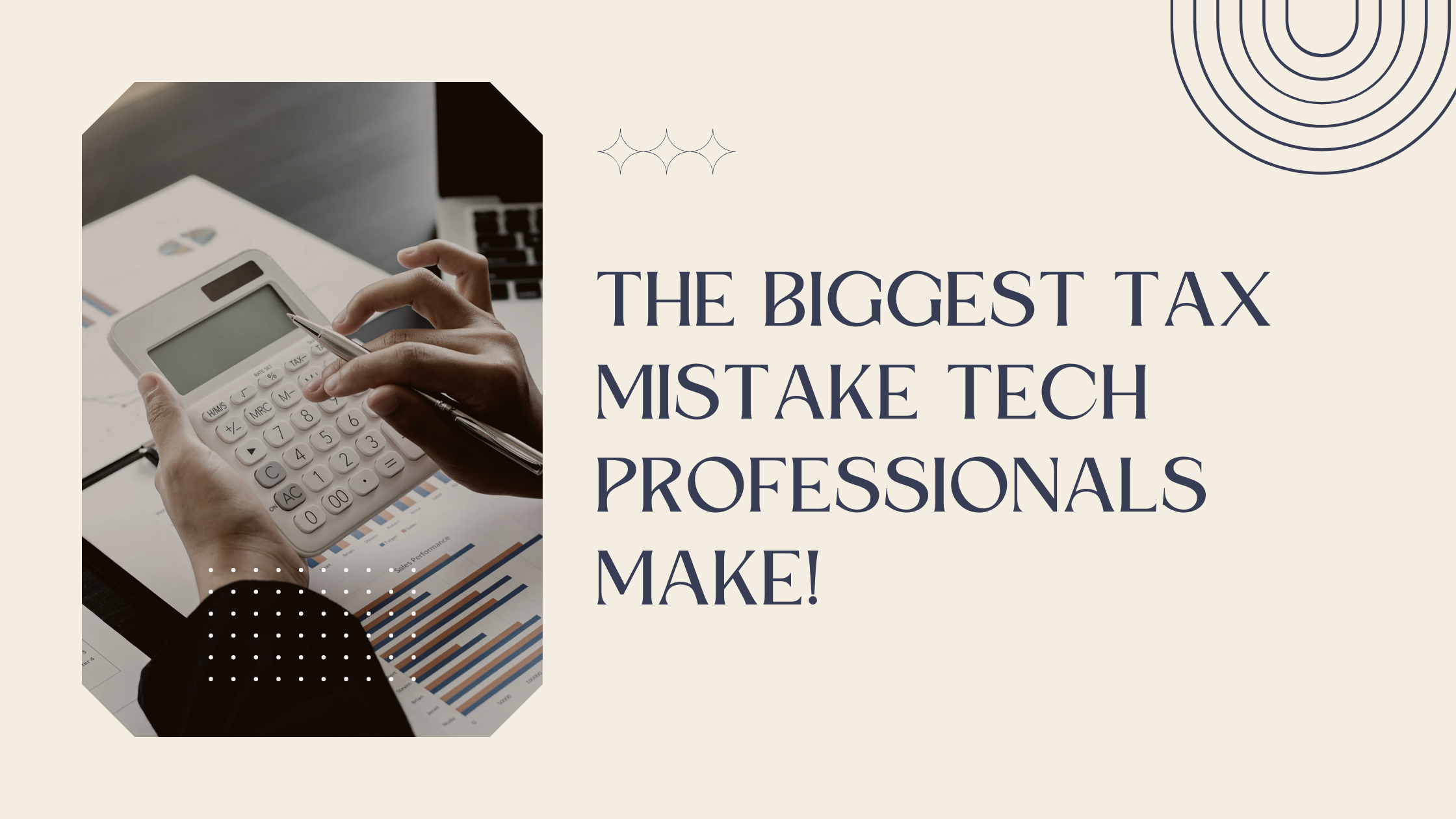Estate Planning for Tech Executives
The tech industry fosters innovation, upheaval, and frequently substantial wealth development. However, creating a profitable business isn’t the only thing that demands forethought and planning from tech executives. Like any successful business, you need to have a well-thought-out estate plan to make sure your fortune is safeguarded and your legacy is carried out the way you have always wished for.
Key Takeaways:
- The foundational estate planning documents consists of a living trust, health care directive and a financial power of attorney
- For tech executives, estate planning is important because it ensures smooth wealth transfer to their loved ones, minimizes taxes, and protects assets and legacy
- The estate planning steps specific to tech executives are setting up a trust, establishing guardians for living dependents, appointing executors, updating beneficiaries, gifting to charities to reduce taxes, and setting up durable power of attorney to manage assets and investments
- If your assets might grow significantly in your lifetime, consider establishing irrevocable trusts to minimize estate taxes. Irrevocable trusts can also help you multiply any qualified small business stock (QSBS) tax exclusion
- If you have business partners, you also need to have a succession plan in place for how the business interest will be passed in the case of retirement, death or disability
- Periodic reviews and necessary updates should be done after every crucial life event
Why is Estate Planning Important for Tech Executives?
- Family security: It ensures family security by guaranteeing that wealth passes smoothly to family members and charitable causes. Without proper planning, your assets could become entangled in the court system, causing unnecessary difficulties for your loved ones, especially in mixed families. Moreover, if one spouse has been primarily responsible for finances and unexpectedly passes away, the surviving family members could face a very difficult time.
- Tax savings with QSBS (qualified small business stock exclusion): Tech Executives can use irrevocable trusts to multiply their QSBS exclusion, which results in significant tax savings and helps protect more wealth for their beneficiaries. This shows how estate planning isn’t just about securing your family’s future but also about making smart financial decisions to optimize your assets.
- Minimizing estate taxes: Maximizing wealth transfer and minimizing estate taxes are key goals in estate planning. Effective strategies like gifting during your lifetime and setting up trusts can reduce tax liabilities and ensure assets benefit your beneficiaries. Working with a skilled estate planning attorney helps tailor a plan to preserve wealth for your loved ones.
- Business Succession Planning: Ever wonder what happens to your business partner’s ownership if something happens to them? Also, how will the assets be passed on if something happens to you, or upon business exit? An estate plan handles the transfer of business ownership for IT leaders and guarantees a seamless transition for your partners and staff if you hold equity in a startup or firm.
- Business partnerships: If you’re involved in a business partnership, it’s crucial to consider how your assets, shares in the business will be managed and transferred upon your death or incapacity. This ensures the smooth continuation of business operations and safeguards the interests of all partners.
- Protecting your Family businesses: Estate planning is more than just paperwork, it’s about crafting strategies that protect the business you’ve built from the ground up, minimizing the burdens of taxes, and safeguarding its value. By planning ahead, you’re not just securing your family’s financial future, you’re nurturing a lasting legacy that embodies your love, dedication, and dreams.
- Wealth creation: Your stocks could potentially appreciate a lot in value. So, you would want to avoid estate taxes and other taxes that may arise. To safeguard against substantial estate and other taxes resulting from significant stock value growth, effective estate planning is essential so that you can fully enjoy the benefits of your investments and pass on the maximum wealth to your loved ones.
- Creditor protection: Creditor protection is paramount. Creating strong estate plans helps shield assets from potential creditor claims, preserving wealth for your family and protecting the assets you’ve achieved.
- Divorce/separation: Divorce can significantly impact estate planning, requiring updates to wills, trusts, and beneficiary designations to reflect changes in marital status and asset ownership.
So, what do tech executives need to do with their estate plan?
Here is a list of estate planning documents and items to focus on. This is not an exhaustive list but a place to get started:
- Trusts: Effective wealth distribution and reduced probate expenses are two benefits of living trusts. Additionally, your family who may not yet be financially capable can have their assets managed by them. It also provides increased privacy and faster distribution of property since the specifics of your estate remain undisclosed in probate court proceedings.
- Powers of attorney: Powers of attorney are legal documents that designate someone to make financial or healthcare decisions on your behalf if you become incapacitated and are unable to make decisions for yourself. The individual you entrust with power of attorney is referred to as your ‘agent’. It’s essential to have POA documents in place to avoid court-appointed decisions. You have the option to authorize someone with POA for a particular task, like buying a vehicle on your behalf.
- Beneficiary designations: By keeping beneficiary designations current, you can prevent unintended consequences and ensure your loved ones receive your assets as per your intentions. Work with your financial advisor to conduct periodic reviews and make necessary updates to your beneficiary designations for accounts such as your retirement accounts, insurance policies and other financial accounts.
- Stock Options and equity: Equity holdings and stock options are common forms of compensation for tech leaders, and they can make a sizable contribution to their wealth. Evaluating these assets and putting plans in place to reduce tax obligations and guarantee a seamless transfer of ownership to beneficiaries are all part of proper estate planning.If you don’t have a well-organized estate plan, your assets could be distributed based on state regulations, potentially conflicting with your intentions.
- Intellectual Property: Your ideas and inventions hold value. An estate plan can protect copyrights, patents, and trademarks for your heirs.
- Donor advised fund: A donor-advised fund(DAF) is a charitable giving vehicle administered by a public charity or financial institution. Donors contribute assets to the fund, receive an immediate tax deduction, and can recommend grants to charitable organizations over time. Contributing to a DAF during your lifetime offers immediate tax deductions. DAFs can be a part of your estate plan to provide flexible charitable contributions.
- Buy/sell agreements: Buy/sell agreements are contracts between business owners that outline what happens to a partner’s share of the business if they die, become disabled, or want to sell their interest. If you have business partners, you need to have a buy/sell agreement in place.
- Succession planning: This could entail creating buy-sell agreements, selecting and preparing successors, and laying out the steps for transferring ownership in the case of a retirement, disability, or death.
- Prenup/ Postnup: Prenuptial/ postnuptial agreements are contracts signed before/after marriage that outline the division of assets and property in the event of divorce, ensuring they are passed down according to the individual’s wishes.
If you have substantial wealth, then you might need more sophisticated estate planning:
Charitable trusts: Charitable trusts are trusts established to benefit charitable causes. Some individuals donate during their lifetimes, while others include charitable contributions as part of their estate planning. Of course, there are those who engage in both practices in a variety of ways such as direct contributions to a charity, to a donor-advised fund or foundation, or via a trust such as charitable remainder trusts or a charitable lead trust.
Donor Advised Fund (DAF): A DAF is a versatile charitable account that can be useful for multiple purposes. Upon death, transferring assets to a DAF may provide estate or inheritance tax benefits. Once funded, you can recommend grants to qualified charities. Establishing a private foundation, another option for active philanthropy, involves creating a charitable organization with a significant initial gift. A board oversees the foundation’s operations, including managing assets and distributing grants to charitable causes, and may also directly engage in charitable activities. Typically, a DAF is a lot easier to create and manage than a private foundation.
Irrevocable trusts: An irrevocable trust is a legal arrangement where assets are irreversibly transferred to the trust that has its own terms and trustees. Once established, the terms of the trust generally cannot be altered or revoked by the person who created the trust. Irrevocable trusts offer several benefits, including asset protection, estate tax reduction, and control over the distribution of assets.
Digital Estate Planning: Digital estate planning involves specifying precise instructions for the management of your digital assets and online presence, including data and accounts. It’s crucial to appoint a designated digital executor who will oversee these aspects according to your wishes.
Digital Assets: Cryptocurrency, websites, and online data storage must be accounted for. Your plan should designate access and ownership for these digital assets to the future generation.
Taking Action: Seeking Professional Guidance
Estate planning is a significant aspect of your overall financial planning and needs to be tailored for your specific needs. Tech executives can rest easy knowing that their legacy and loved ones will be safeguarded for many years to come by being proactive with estate planning.
If you’d like to understand how we work with clients in organizing their estate planning and taking the lead to bring all the experts together to proactively plan for the various life milestones the client goes through, please book a call.









Leave a Reply
Want to join the discussion?Feel free to contribute!